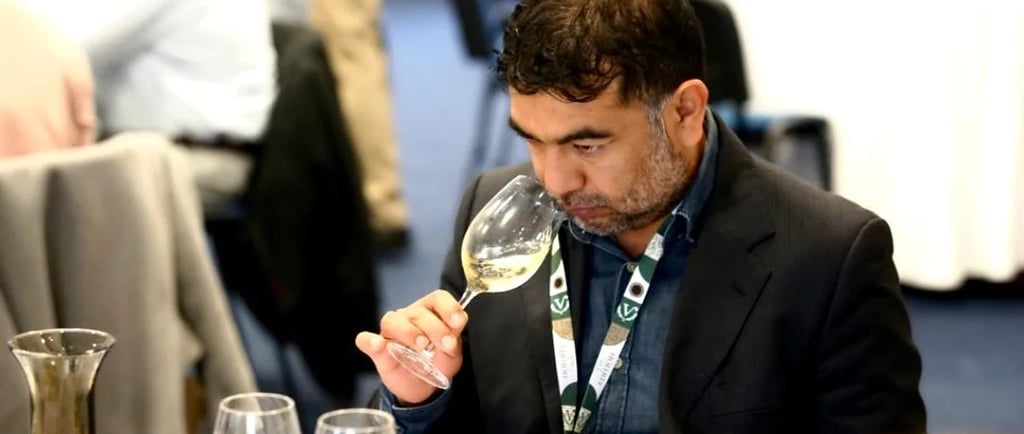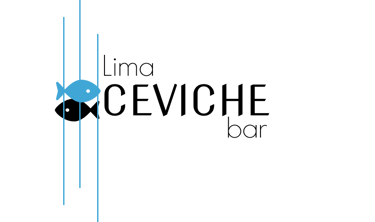Meet Marco Leyva, Portugal's First Pisco Expert
In the heart of Lisbon's Campo de Ourique neighborhood, there's a man who has dedicated over 15 years of his life to introducing Portugal to one of South America's most treasured spirits. Marco Leyva, co-founder of Lima Ceviche Bar, is one of Portugal's first certified pisco experts – a title that represents not just professional achievement, but a mission to share Peru's heritage with his adopted homeland.
8/22/20254 min read


Marco’s Story
Marco's journey began in the most unlikely place – a law office in Trujillo, Peru.
In 2005, whilst practising Law, he founded an NGO in Cajamarca supporting children working and living on the streets of Peru, INCAWASI, with a group of friends. To this day he continues to support and be a part of this amazing project.
Just two years later, life took an unexpected turn. An International Bartending course sparked something he never anticipated: a deep fascination with spirits, cocktails, and the stories they have to tell.
This led Marco to Portugal in 2008, where he began working at A Vírgula restaurant in Cais do Sodré as a waiter and sommelier assistant. It was here that he first recognized the opportunity to introduce Portuguese palates to pisco, Peru's national spirit that remained virtually unknown in Europe.
In 2010, Marco enrolled in the prestigious Spanish Tasting School (Escuela Española de la Cata) in Madrid, training as both a sommelier and tasting specialist. This formal education provided him with the technical foundation to understand not just what makes pisco special, but how to communicate its complexity to those around him.
His commitment impressed the Portuguese Sommeliers Association (Associação de Escanções de Portugal), which accepted him as a member that same year. Marco quickly became a valuable contributor, writing articles about pisco for the association's magazine "O Escanção" and participating in professional tastings.
Marco's entrepreneurial spirit emerged in 2011 with "O Chefe em Casa," a unique catering service that brought authentic Peruvian cuisine directly into clients' homes. This intimate setting allowed him to pair traditional dishes with pisco cocktails, creating Portugal's first authentic Peruvian dining experiences in private settings.
The success of this venture led to Marco opening Qosqo in 2012 – Lisbon's first Peruvian restaurant. But his true breakthrough came in 2013 when he launched Wine&Pisco, Portugal's first bar dedicated entirely to pisco.
Wine&Pisco wasn't just a bar; it was Portugal's first pisco education center. Marco personally guided customers through tastings, explaining the differences between the eight grape varieties used in pisco production, the unique distillation process, and the regional variations that make each pisco distinct.
Direct from the Source
Recognizing that authentic pisco education required an authentic product, Marco started importing pisco directly from Peru through his company Muchik Lda. This wasn't simply about business; it was about cultural authenticity.
This direct relationship with Peruvian producers allowed Marco to bring Portugal some of the finest piscos available. His selection process was meticulous, focusing on producers who maintained traditional methods while achieving exceptional quality.
Marco's commitment to pisco reached its pinnacle in 2014 when he completed the Professional Pisco Taster course, a rigorous program organized by Peru's Pisco Regulatory Council in collaboration with Agrarian University La Molina and the Tasting School.
This certification represents the gold standard in pisco education. The course covers everything from grape cultivation in Peru's five designated pisco regions to the precise distillation techniques that have been refined over 400 years. Students learn to identify the subtle differences between piscos made from different grape varieties, understand how altitude and climate affect flavor profiles, and master the art of pisco tasting.
The History of Pisco
The story behind Pisco began in the 16th century when Spanish conquistadors brought grape vines to South America. The port town of Pisco, a few hours south of Lima, became the center of production and gave the spirit its name. Indigenous communities quickly mastered distillation techniques, creating a spirit that reflected both Spanish traditions and local innovation.
By the 17th century, pisco had become so renowned that it was exported throughout the Spanish empire. The spirit survived the devastation of Peru's wine industry during the War of the Pacific and experienced a renaissance in the 20th century as Peru reclaimed its status as pisco's homeland.
Unlike other brandies, Peruvian pisco cannot be aged in wood, cannot have additives, and must be distilled to proof – meaning no water is added after distillation. This results in a pure expression of grape character that varies dramatically depending on the variety used.
Sharing Pisco in Portugal
Marco's expertise extends far beyond his own businesses. Since 2020, he has served as an international judge for prestigious competitions including the International Awards Virtus in Lisbon, the Uva de Ouro competition for Portuguese wines, and wine competitions organized by the Portuguese Sommeliers Association.
Perhaps most importantly, Marco regularly conducts free pisco masterclasses for students in the Portuguese Sommeliers Association's certification programs. These sessions represent his ongoing mission to educate Portugal's next generation of beverage professionals about pisco's complexity and cultural importance.
While pisco remains Marco's specialty, his expertise has expanded to encompass Portugal's craft beer scene. He opened The Beer Station in 2016, dedicated to showcasing Portugal’s finest craft beers, and he currently manages Pisco Peruvian Bar, where he continues to refine pisco cocktail recipes and introduce new audiences to the spirit.
The Perfect Pairing: Pisco and Peruvian Seafood
At Lima Ceviche Bar, Marco's pisco expertise finds its perfect expression in pairing with Peru's incredible seafood tradition. Classic combinations like pisco sour with ceviche aren't accidental – they represent centuries of culinary evolution in Peru's coastal regions.
Marco's cocktail menu at Lima Ceviche Bar showcases pisco's versatility, from traditional preparations like pisco sour and chilcano to innovative creations that incorporate European ingredients.
The restaurant's location in Campo de Ourique provides an intimate setting where he can personally guide guests through pisco tastings, sharing stories about specific producers, explaining flavor profiles, and demonstrating proper tasting techniques.
Experience Marco's pisco expertise firsthand at Lima Ceviche Bar in Campo de Ourique, where Portugal's first certified pisco expert creates authentic cocktails that showcase Peru's liquid heritage in perfect harmony with the country's incredible seafood tradition.
Ceviche
Experience the elegance of traditional Peruvian cuisine.
© 2026. All rights reserved.
